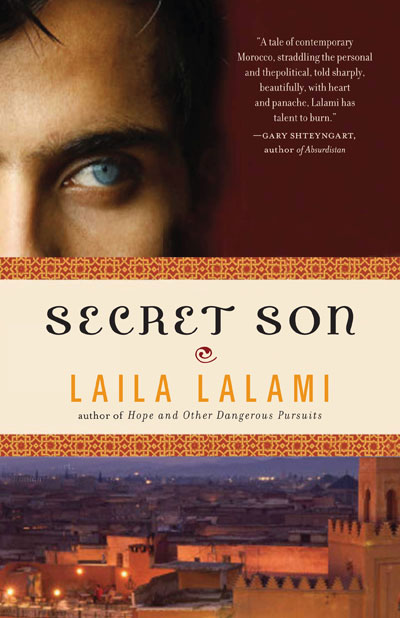Month: November 2008
I went to New York earlier this week for a panel discussion and a few meetings. The galleys for my novel, Secret Son, had just been delivered to my publisher, so I got to hold one in my hands for the first time. Here is what the cover art looks like:

The book will be out on April 21.
I’ve been interested in the complicated modern history of Iraqi Jews for some time, so I was thrilled to come across Adam Shatz’s latest piece in the LRB. It’s a review of two recent memoirs — Violette Shamash’s Memories of Eden and Sasson Somekh’s Baghdad, Yesterday. Here’s the opening paragraph:
On 27 April 1950 a man whose passport identified him as Richard Armstrong flew from Amsterdam to Baghdad. He came as a representative of Near East Air Transport, an American charter company seeking to win a contract with Iraq’s prime minister, Tawfiq al-Suwaida, to fly Iraqi Jews to Cyprus. Only six weeks earlier, the Iraqi government had passed the Denaturalisation Act, which allowed Jews to emigrate provided they renounced their citizenship, and gave them a year to decide whether to do so. Al-Suwaida expected that between seven and ten thousand Jews would leave out of a community of about 125,000, but a mysterious bombing in Baghdad on the last day of Passover, near a café frequented by Jews, caused panic, and the numbers registering soon outstripped his estimate. The position of the Jews in Iraq had been deteriorating with alarming speed ever since the outbreak of the Arab-Israeli war in 1948: they were seen as a stalking horse for the Zionists in Palestine, and were increasingly rewarded for their expressions of loyalty to Iraq with suspicion, threats and arbitrary physical assaults. By the spring of 1950 the question was when, not whether to leave, and on 9 May NEAT signed a contract with the Iraqi government to organise their departure.
For Richard Armstrong and NEAT, the uprooting of the Middle East’s most ancient Jewish community was not a mere business transaction: it was a mission. Armstrong was really Shlomo (né Selim) Hillel, an Iraqi-born Mossad agent; NEAT was secretly owned by the Jewish Agency; and Israel, not Cyprus, was the refugees’ ultimate destination.
The full essay is available here. Only the Somekh book is available in the states, but I’m sure the one by Shamash can be had online.
On the eve of Election Day, the Guardian newspaper has asked a few American writers what they think of the presidency of George W. Bush. As you might expect, none have anything good to say about him. There is outrage, there is anger, but there is also humor. Here’s Tobias Wolff:”When I see someone being rude to a waiter, or blocking the road in a Ford Expedition, or yakking loudly on a cell phone in a crowded elevator, I naturally assume they voted for George W Bush.”
My favorite take–by which I mean the one that comes closest to my own experience–is Aleksandar Hemon’s:
I became an American citizen in November 2000, around the time of the infamous electoral impasse and the Supreme Court decision that gifted George W Bush his first presidency. I had ended up in the USA in 1992 because of the war in Bosnia. For eight years I was an alien resident – a contradiction in terms – before I decided to cross the big threshold and fully enter the home of the brave. Hence my first fledgling-American sentiment was full-fledged embarrassment at the democratic process that allowed the candidate for whom the minority of voters had cast their ballots to become the President of all.
What made things worse was that W was/is the American stereotype come true – ignorant, incurious, congenitally uncomfortable with thought.
You can read the entire piece here.
